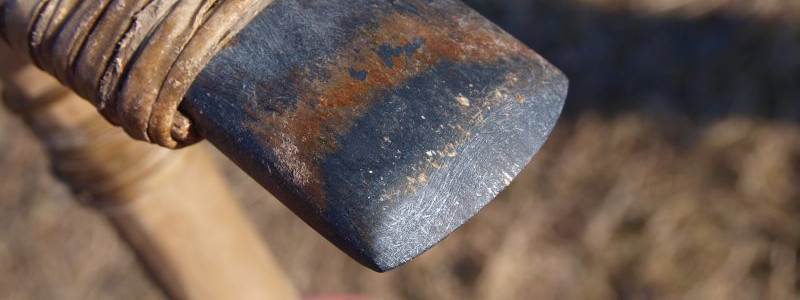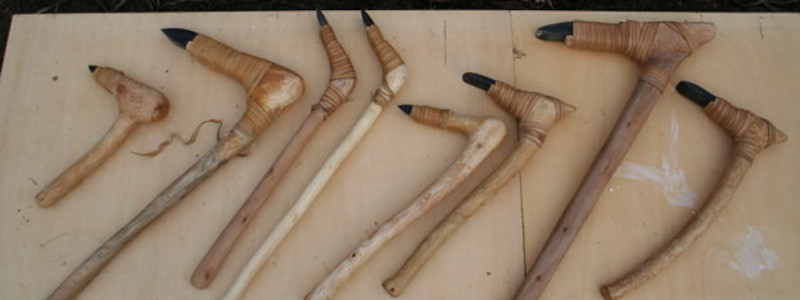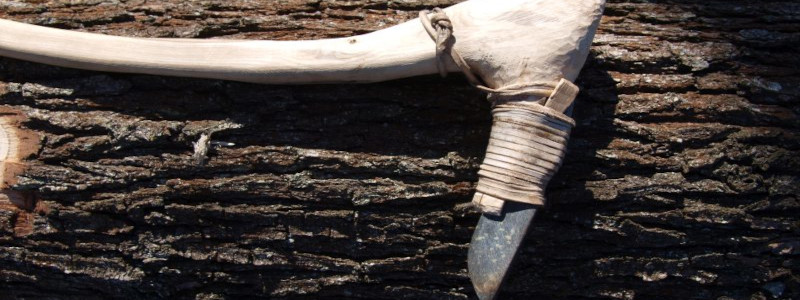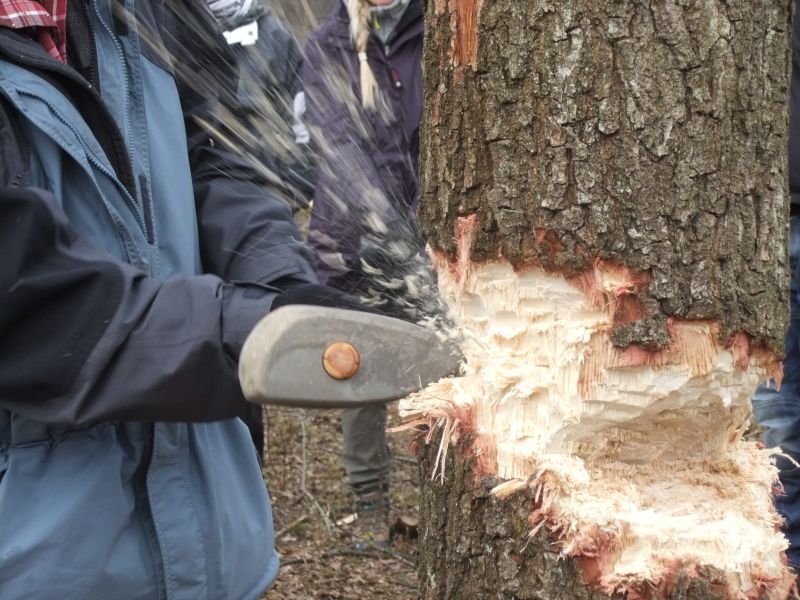The Ergersheim Experiments are a series of archaeological experiments on felling and woodworking techniques with reconstructed (Early) Neolithic tools, carried out annually since 2011. They are organized by volunteer scientists and students from various universities, heritage administrations, museums and institutions, as well as archaeo-technicians and interested laymen from the Netherlands, Germany, Austria and Switzerland. The experiments are generously supported by the municipality of Ergersheim, Bavaria, Germany and the Archaeological Association of Ergersheim.
Techniques of Neolithic tree felling and woodworking have been experimentally investigated for a long time, but hardly ever with woodworking tools from the Early Neolithic Linear Pottery culture. On 29 October 2010 User rolfpeter1 presented the simple question in www.archaeoforum.de, an Internet discussion forum on pre- and protohistoric archaeology and reconstruction: "Does anyone have information on how people of the Linear Pottery culture managed to cut down big trees?" This developed into one of the most extensive threads on this internet platform. After considering many theoretical options about the use of obliquely hafted stone adzes it became clear that a more practical approach was necessary and the first experiment was initiated.


















